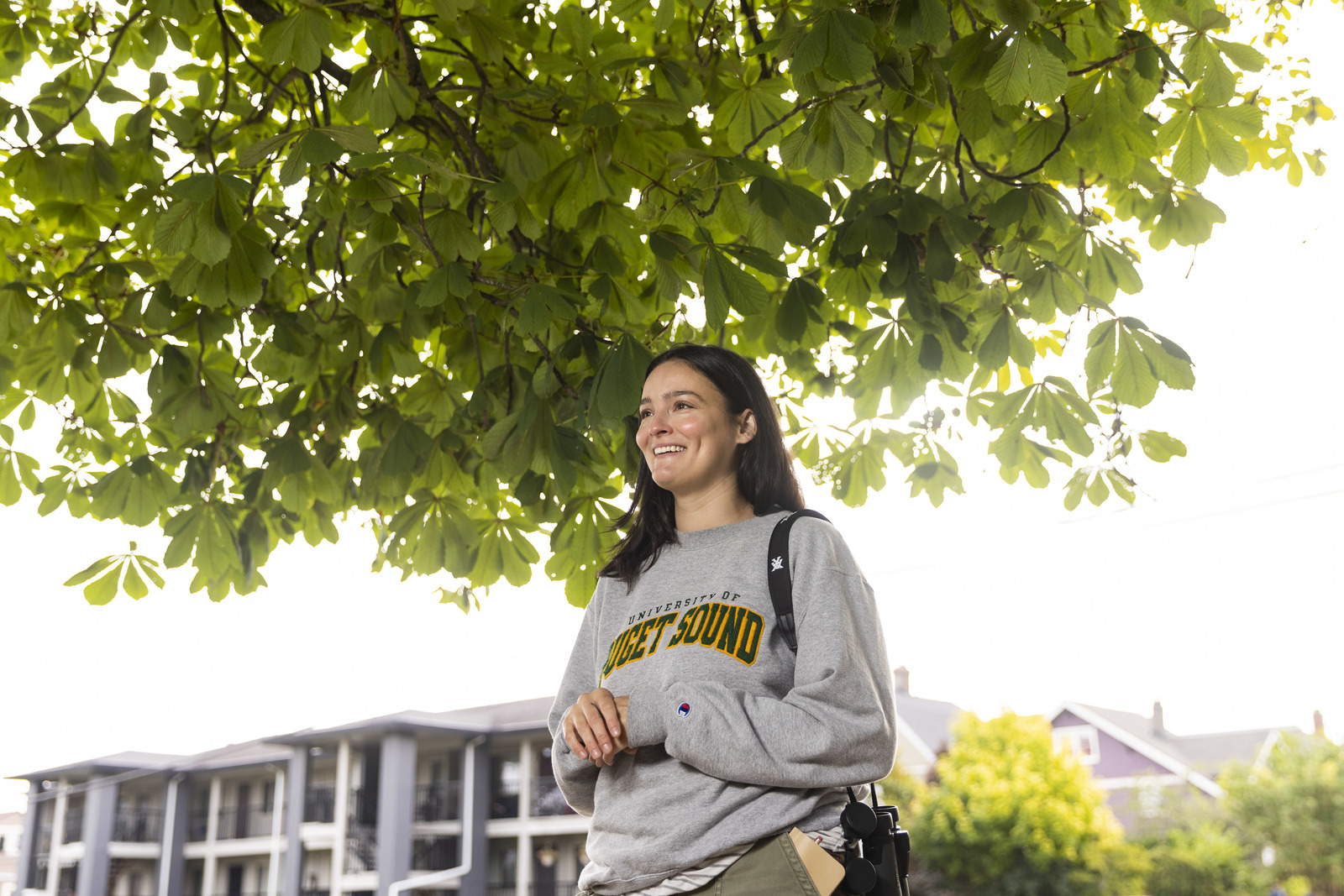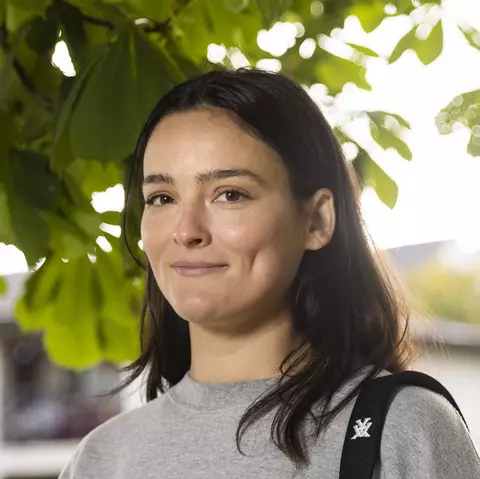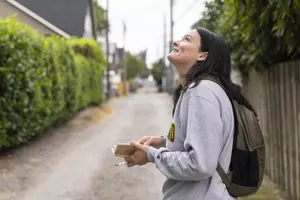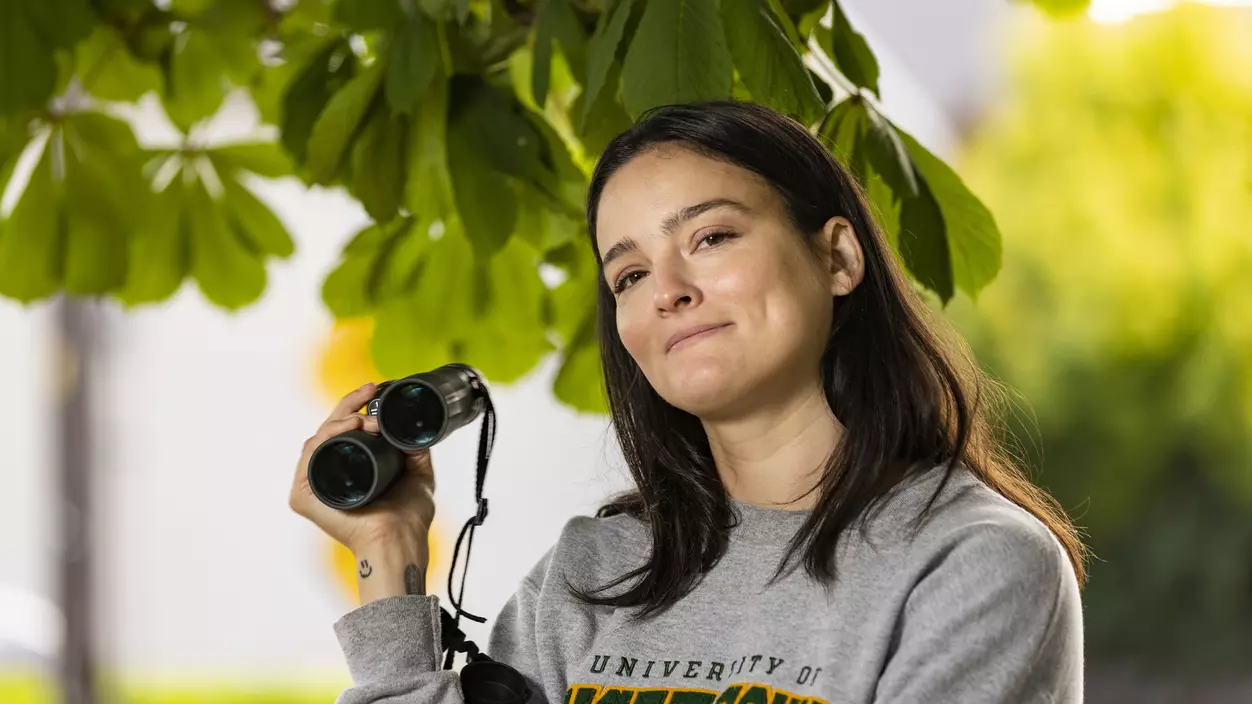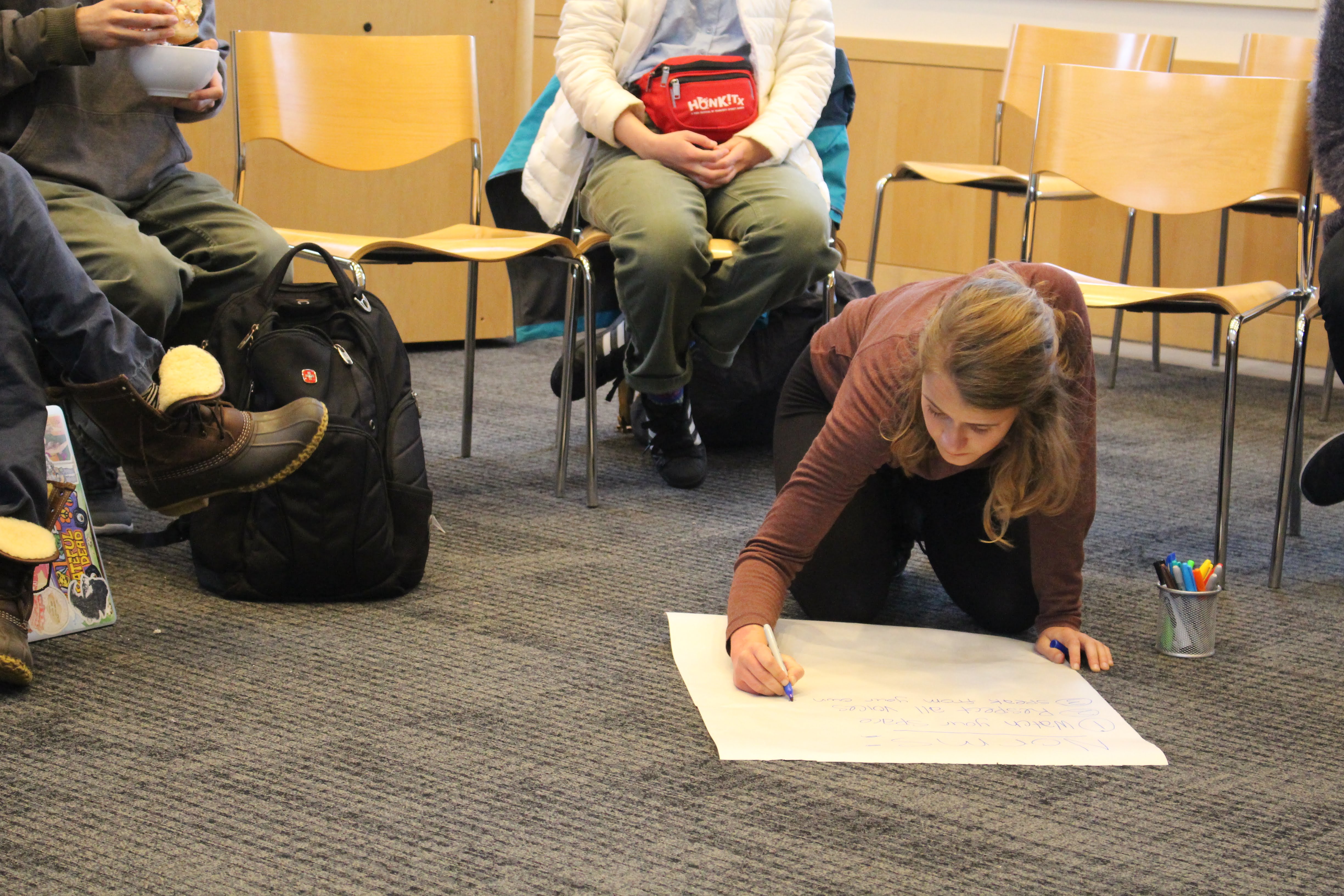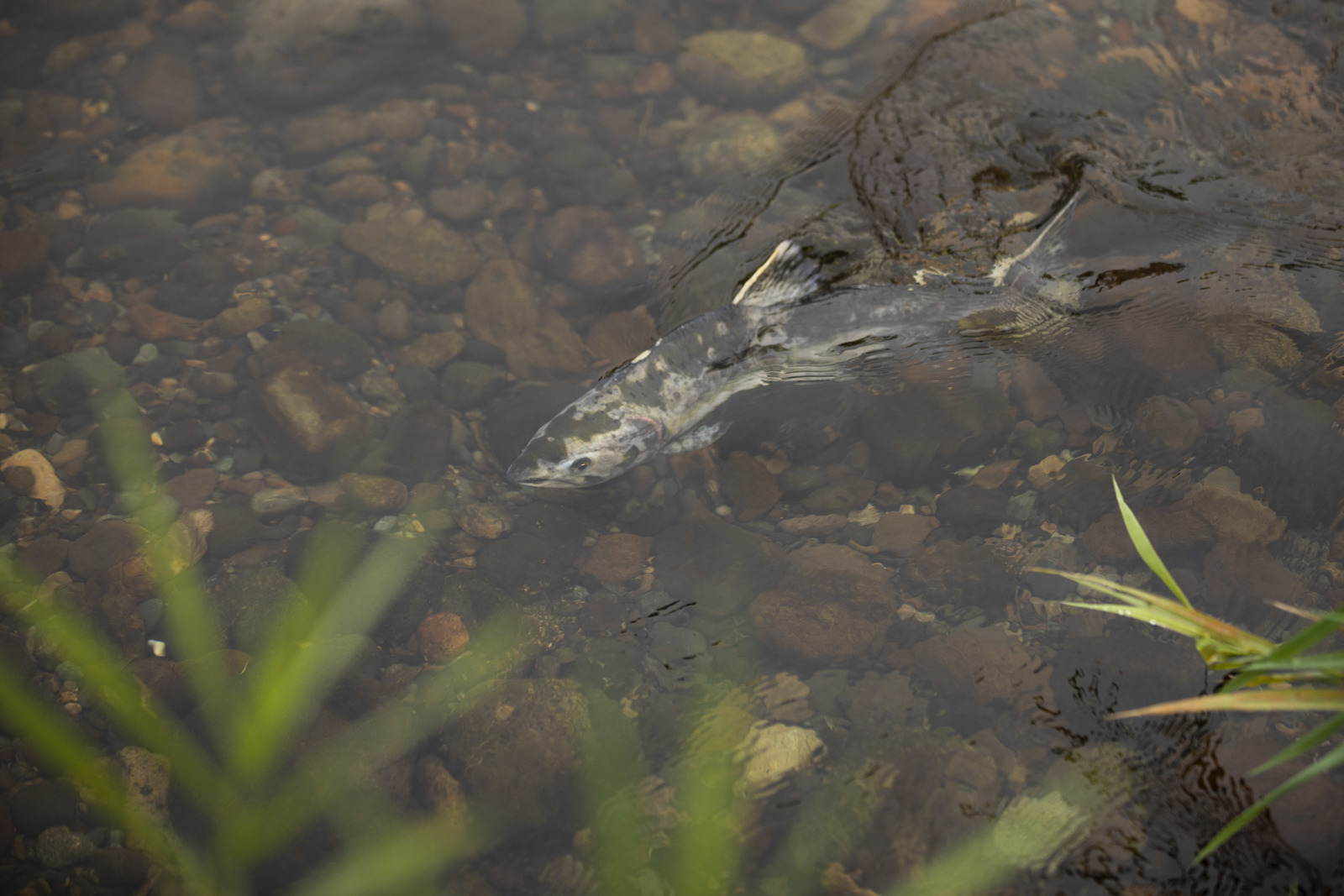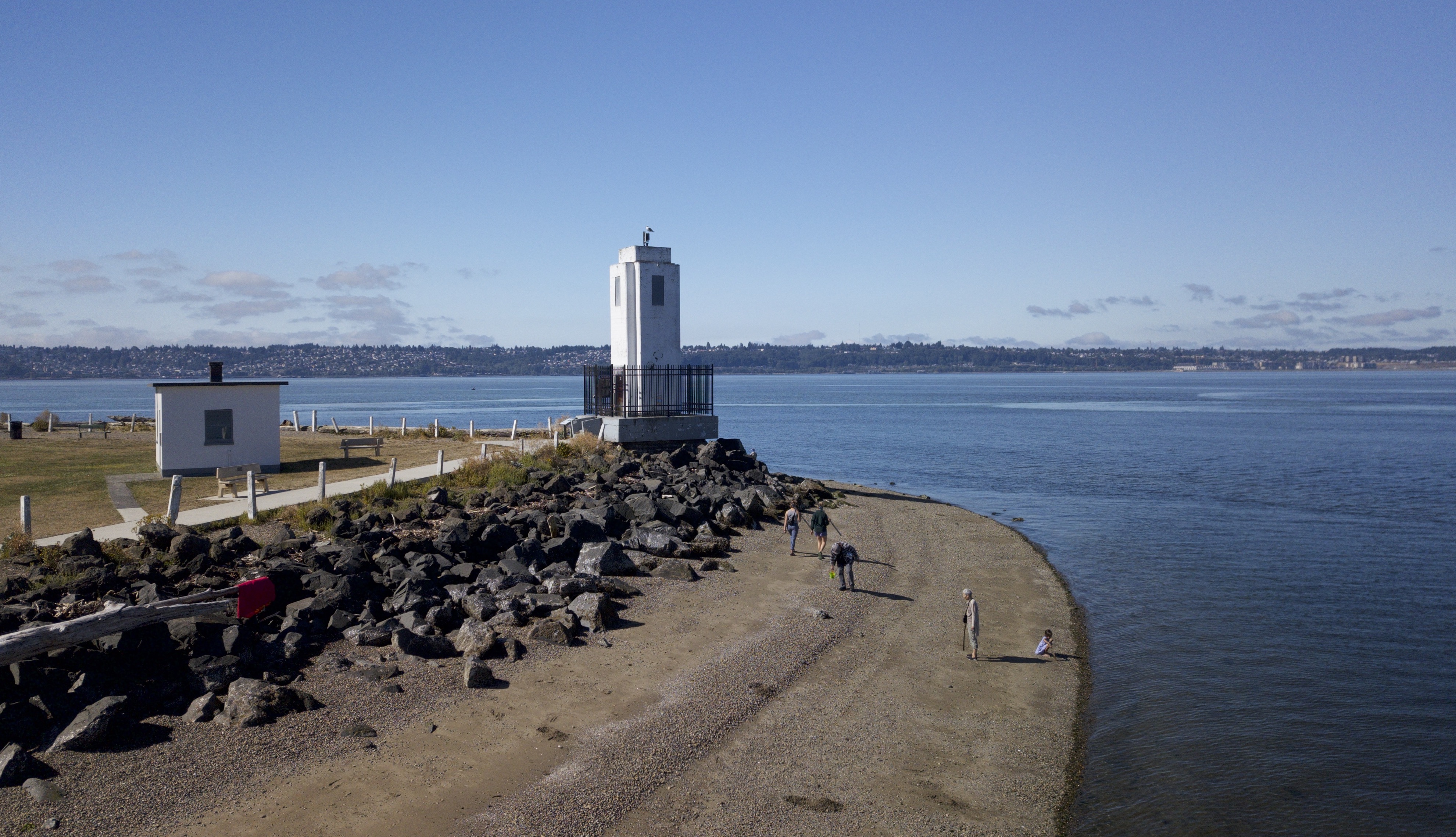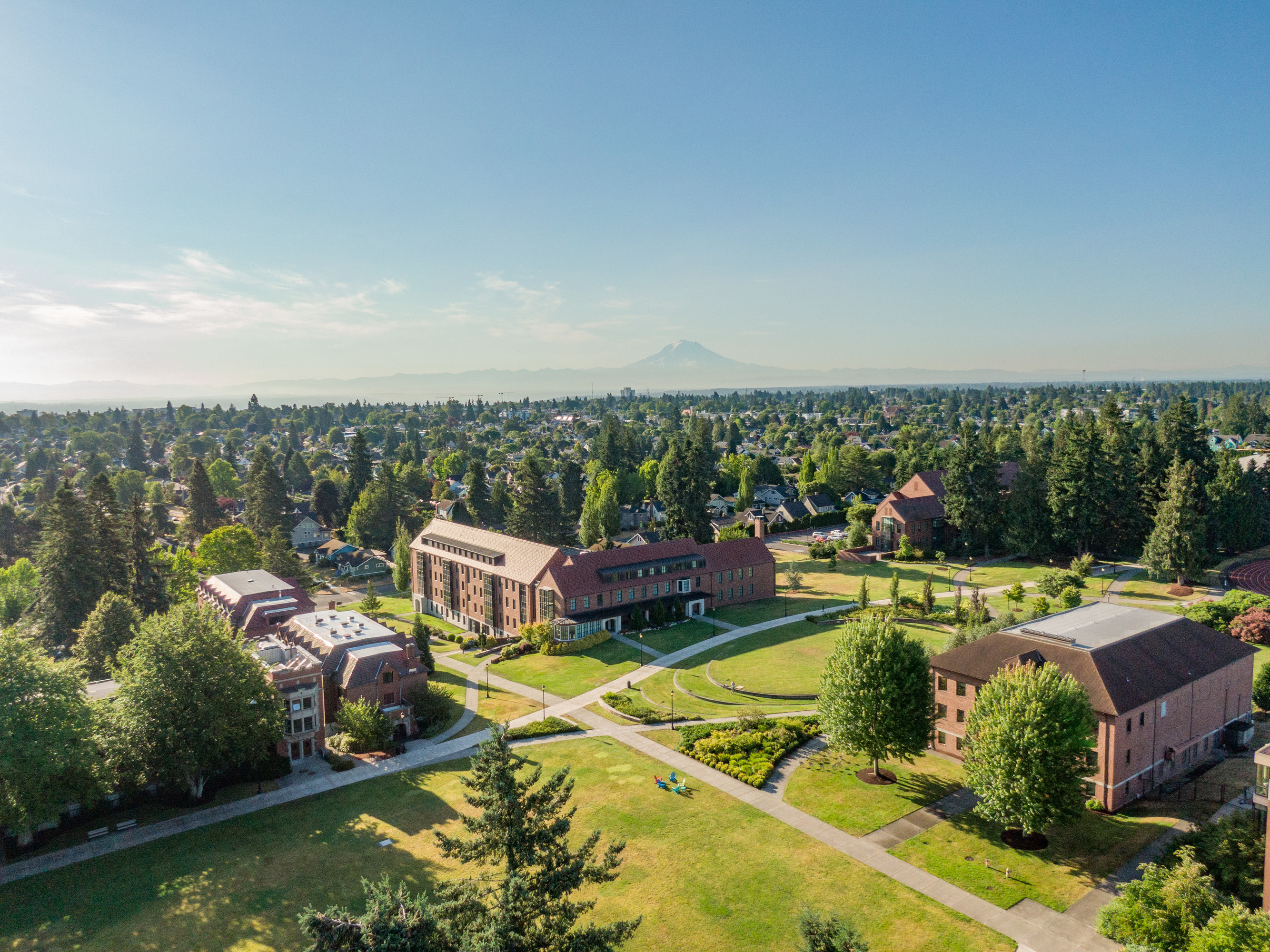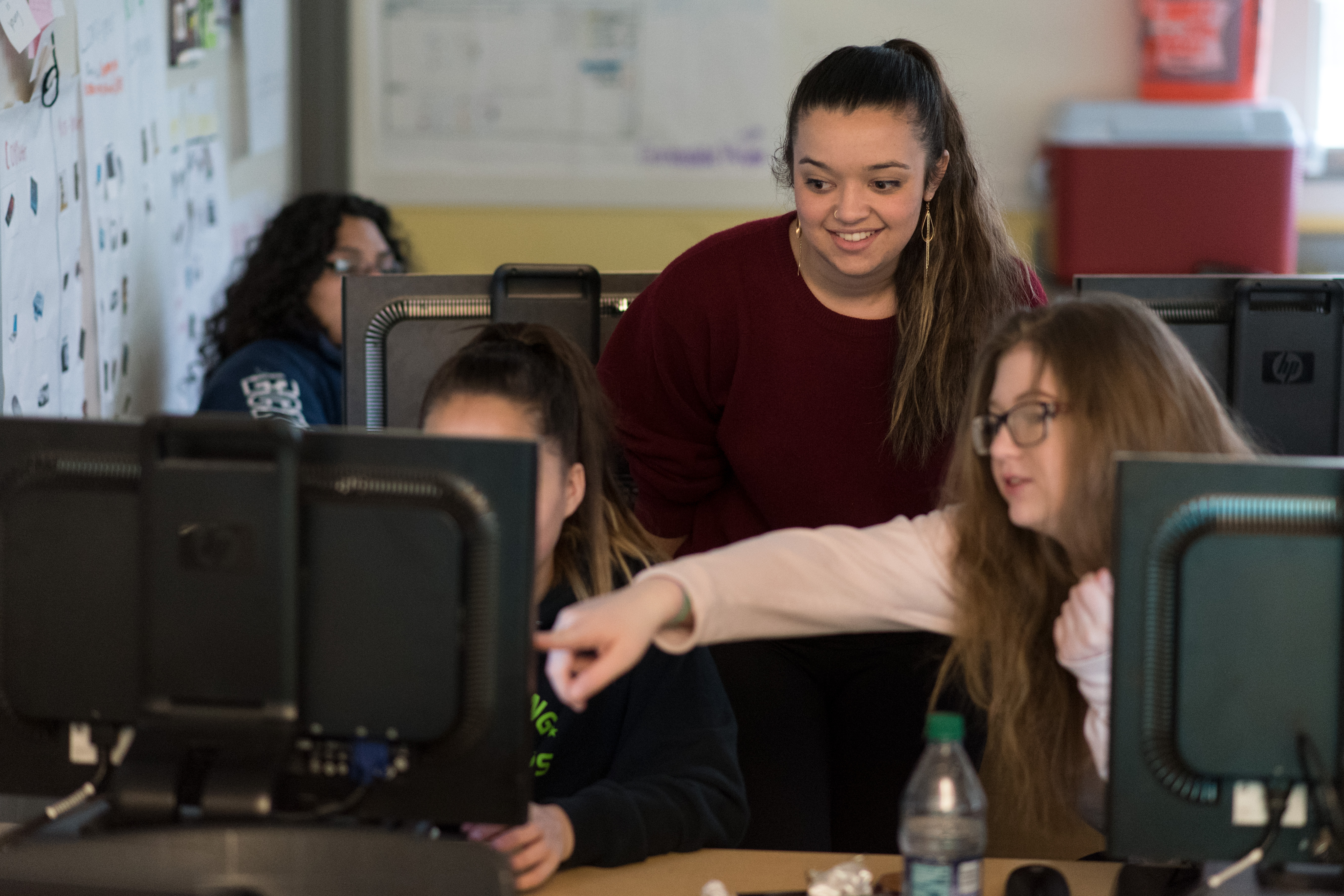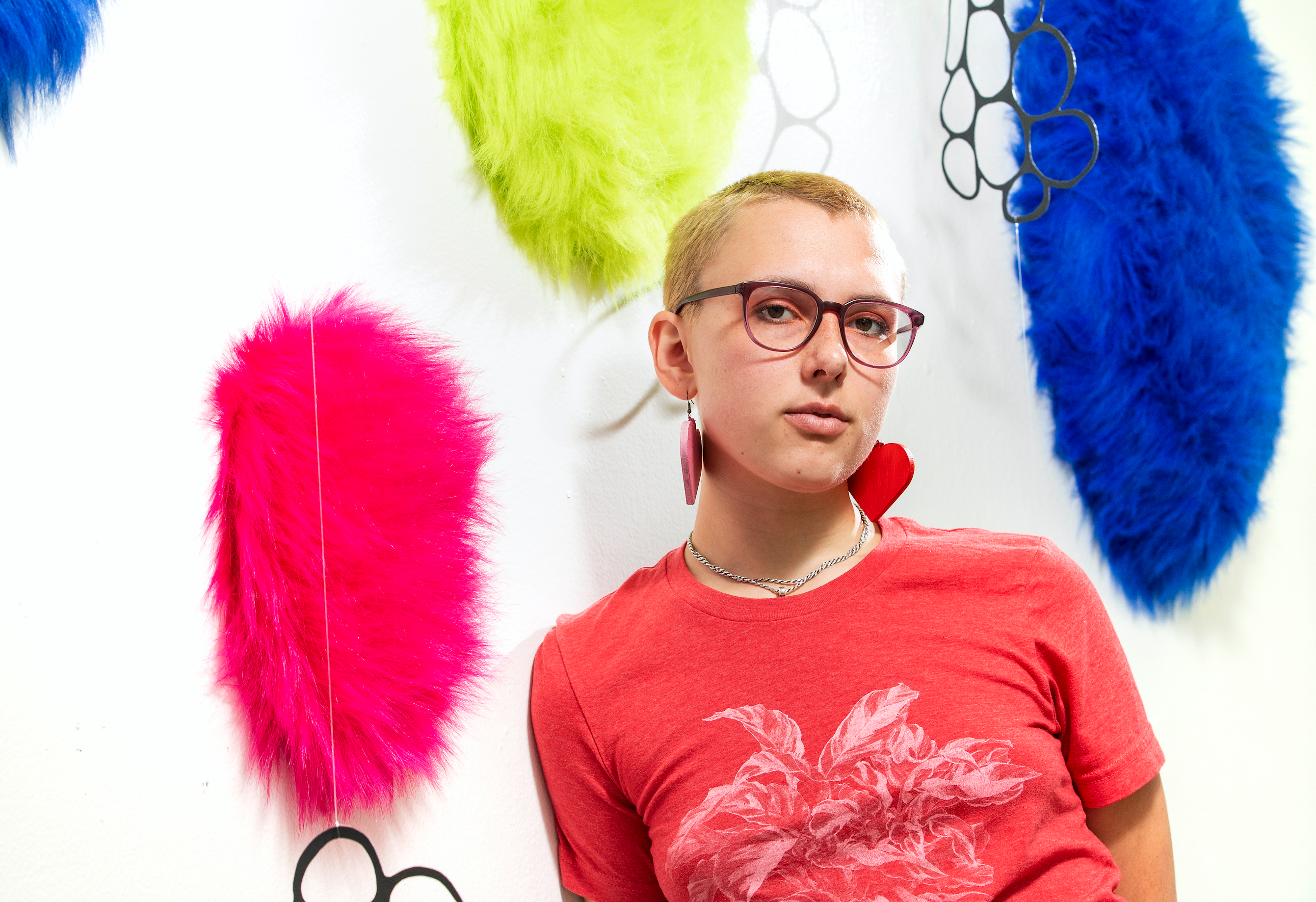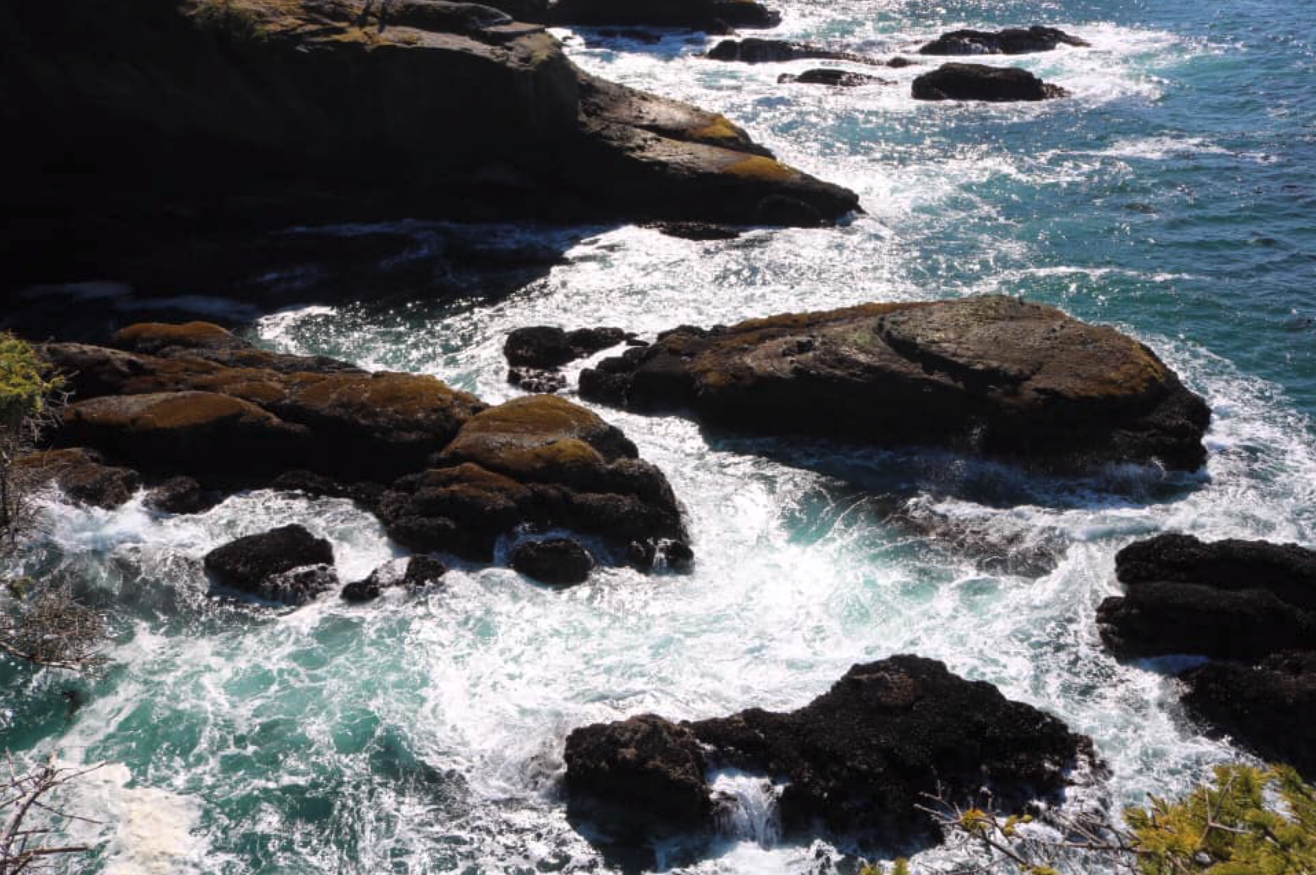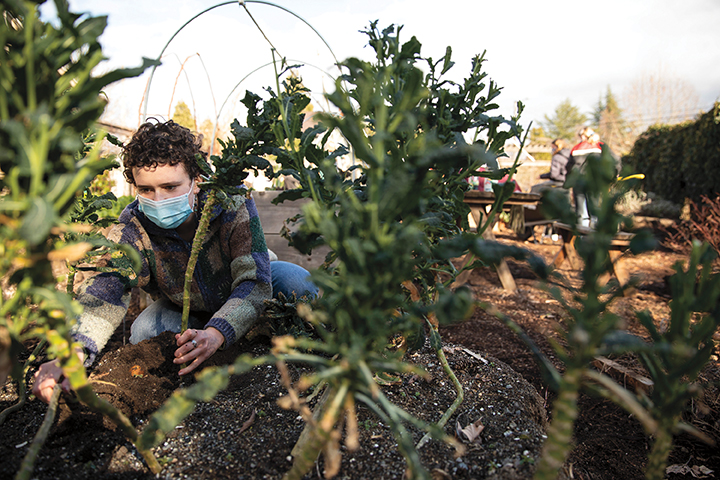Amanda Dougherty ’24 investigates the urban heat island effect in Tacoma
It’s 6 a.m. in Tacoma’s North End neighborhood, and everything is quiet except for the whistling of a group of white-crowned sparrows high in a tree at the end of an alley. Down below, Amanda Dougherty ’24 is watching the sparrows through her binoculars. She has an app pulled up on her phone to help identify the birds by their song, and she notes how many birds she sees in her notebook. Once she’s made her notes, it’s off to the next street on her route.
Dougherty is a biology and environmental policy and decision making major at University of Puget Sound. This summer, she conducted research analyzing the urban heat island effect on the density and diversity of birds across eight different streets and alleyways across Tacoma.
